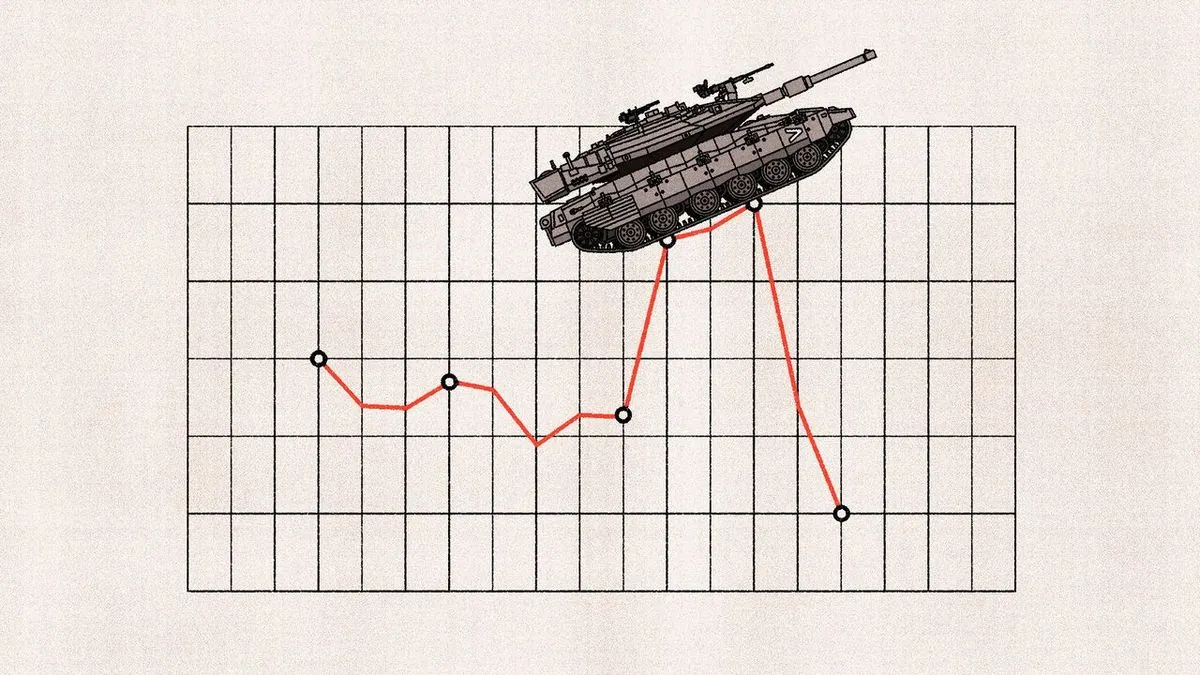Israel's economy is experiencing significant strain as the ongoing conflict continues to escalate costs and impact investor confidence. The Bank of Israel estimates that war-related expenses could reach 250 billion shekels (approximately $65.7 billion) by the end of 2025, a figure that may increase due to recent military operations in Lebanon.
The financial burden of the conflict is evident in various sectors. The country's renowned Iron Dome air defense system, developed in 2011, has been heavily utilized, contributing to the substantial military expenditure. Additionally, large-scale troop mobilization and intensive bombing campaigns have further inflated costs.
As a result of these financial pressures, Israel's debt-to-GDP ratio has risen from 62% in 2023 to 67% in 2024. The government deficit has also expanded to 8.3% of GDP, significantly exceeding earlier projections. These economic indicators have led to credit rating downgrades and increased borrowing costs, with the cost of insuring Israel's debt against default reaching a 12-year high.
Foreign investors have been reducing their holdings of Israeli bonds, with the share held by non-residents declining from 14.4% in September 2023 to 8.4% in July 2024. This shift has been partly attributed to ESG (Environmental, Social, and Governance) concerns related to the conduct of the war.
The impact of the conflict extends beyond the financial markets. Israel's crucial tech sector, which accounts for approximately 20% of the economy and has earned the country the nickname "Silicon Wadi," is facing challenges. In response, the government pledged $160 million in April 2024 to boost venture capital funding for this vital industry.
Other sectors, such as agriculture and construction, are also experiencing difficulties due to worker shortages and displacement of residents. These factors have contributed to a significant economic slowdown, with GDP remaining 1.5% below pre-conflict levels as of the second quarter of 2024.
Despite these challenges, Israel's economy has demonstrated resilience throughout its history. The country's transition from a primarily agricultural economy to a knowledge-based one, coupled with its high percentage of university degree holders and world-renowned cybersecurity industry, provides a strong foundation for recovery.
"The economy is strong, and the country's credit ratings should rebound once the war has ended."
However, the ongoing conflict continues to cast uncertainty over the economic outlook. As Israel navigates these turbulent times, the interplay between geopolitical events and economic stability remains a critical concern for both domestic and international observers.
